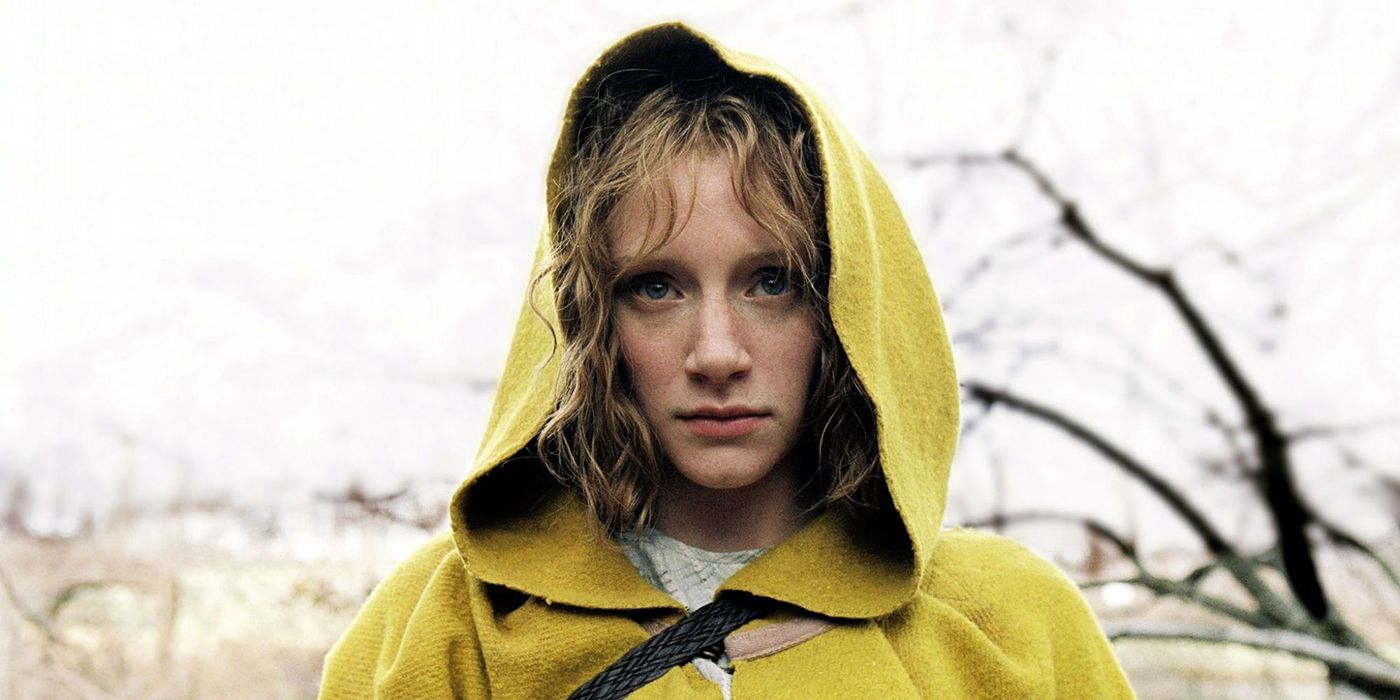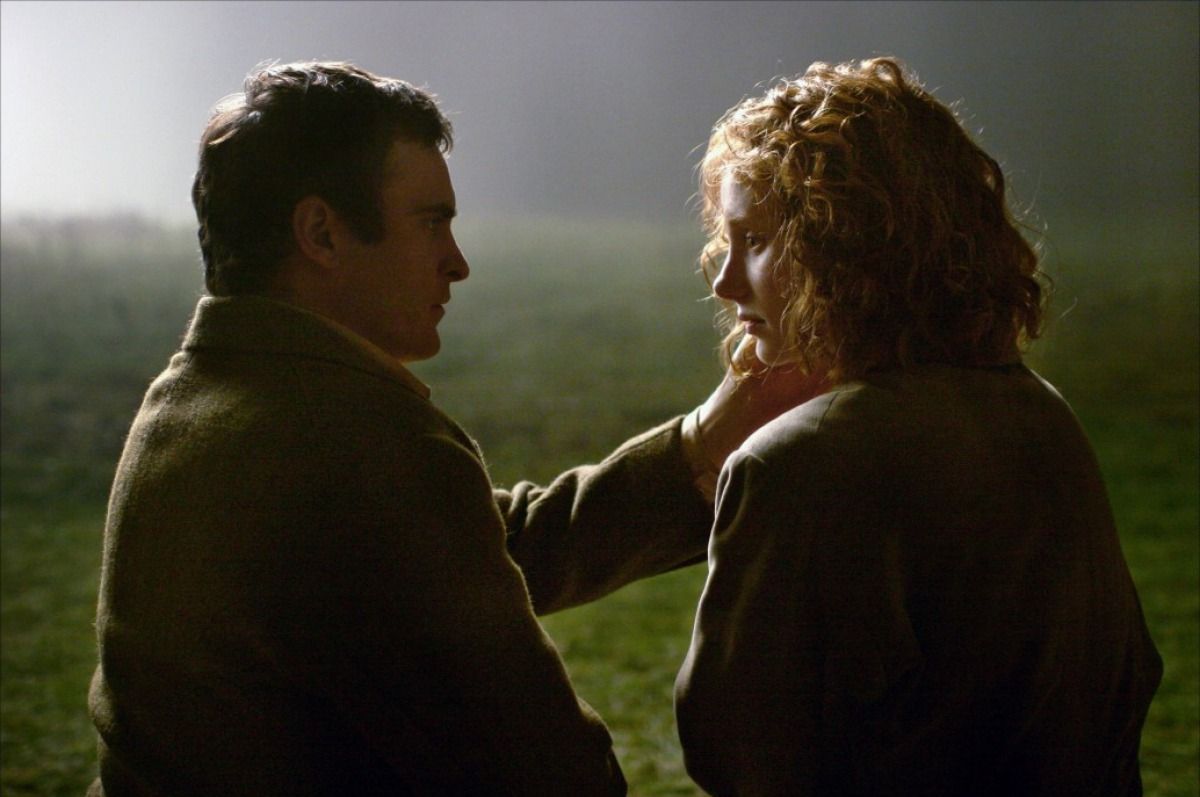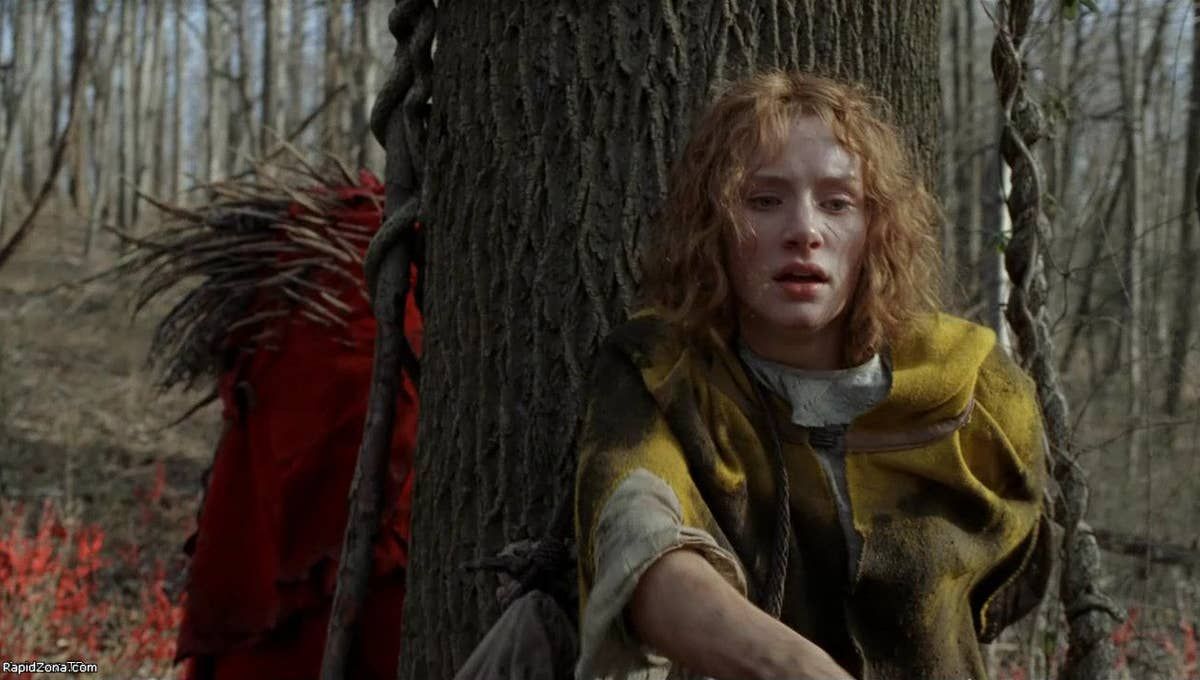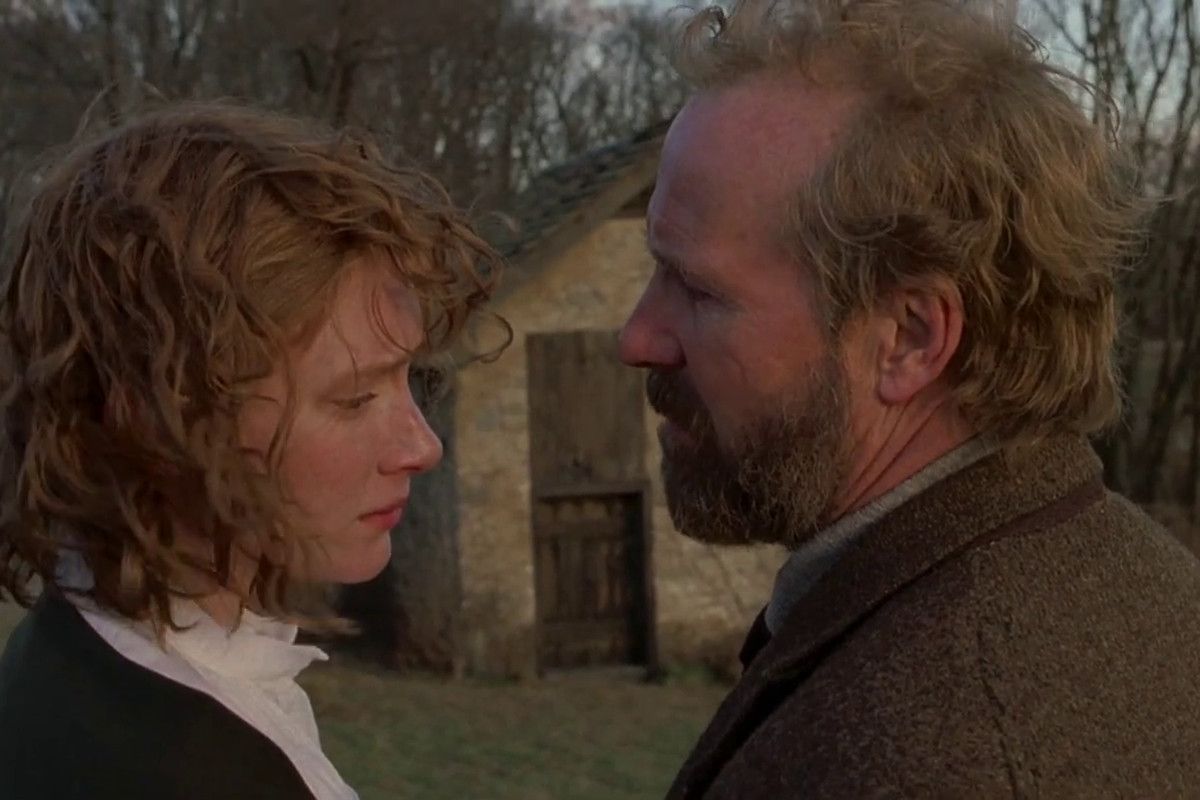By the time M. Night Shyamalan released The Village, he’d been fully anointed by Hollywood — the next Hitchcock, the next Spielberg, a skillful manipulator of audiences and the great savior of mainstream thrills. Of course, with the back to back success of The Sixth Sense, Unbreakable, and Signs, he’d also attracted a mild backlash as viewers became acclimated to the tricks he used to tell his engrossing stories, twists, and surprises that are part of any filmmaker’s arsenal, but when employed repeatedly, start to seem like crutches or shortcuts. And when his sixth film (and fourth riding this particular wave of success) arrived in theaters, moviegoers and critics were already poised and prepared to figure out the secrets it possessed, whether or not there actually were any being kept from them.
Unfairly maligned at the time, its story about an isolated Pennsylvania community menaced by mysterious beasts rankled audiences because it seemed to fold one twist on top of another. Now available on Movies Anywhere and eligible for users to send a Screen Pass*, it’s easier to see the film without the inherited skepticism engendered by its predecessors: after 16 years, The Village has endured not just as a great M. Night Shyamalan story, but one of his best, not because each new detail about these characters and their world comes as a surprise, but because the filmmaker uses them to flesh out his vision, to offer new perspective, and most of all to anchor, fulfill, and deepen the ideas and emotions that make those details seem so surprising.
That said, there are twists; it’s just that nobody paid attention to the real ones. The film stars Joaquin Phoenix as Lucius Hunt, a young man raised in the small town of Covington who appeals to his elders for permission to visit neighboring cities for medicine that might save lives and alleviate pain. They forbid his expedition not just because these cities are full of crime, violence, and poverty, but also because outside the boundaries of the town, mysterious creatures lurk in the woods, waiting to prey on its people. In the meantime, he develops a quiet infatuation for Ivy Walker (Bryce Dallas Howard), a headstrong and adventuresome blind girl who cares for the children of the village, as well as a developmentally-disabled young man named Noah (Adrien Brody).
When Lucius is injured after proposing for Ivy’s hand in marriage, Ivy asks her father Edward (William Hurt), the town leader, for permission to make the same journey that Lucius wanted to undertake — only this time, to save her fiancée. Like Alfred Hitchcock’s change of perspective in Psycho from Marion Crane (Janet Leigh) to her sister Lila (Vera Miles), the film shifts to follow Ivy as she embarks on this dangerous trip, and faces the creatures that she and her fellow townspeople were warned about. Meanwhile, Shyamalan begins slowly peeling back the layers of his plot, offering increasing clarity about different elements of the film to provide the audience with a fuller picture.
Specifically: (1) the audience learns that the beasts living outside the woods are a fiction created by the elders to keep the children and their families from trying to leave; and (2) the village exists not in the 19th century as its fashion, architecture, and culture suggest, but in modern-day Pennsylvania, inside a wildlife preserve where it’s protected from modernity and the dangers that the elders built it to escape. Shyamalan’s patience and skill in revealing these details is not a trick, but a way to give the characters’ actions increased meaning. The elders founded the town to escape from their own grief after each of them experienced a painful act of victimization or violence, suffering unimaginable loss, and revealing this fact after its integrity is tested by a sudden act of violence against young Lucius amplifies the emotional weight of Ivy’s journey for medicine. Whether she will succeed makes the difference between this next generation of town leaders surviving and literally dying; but also the importance of her venturing outside without revealing the secrets of the village — or discovering too many of the realities of the outside world — makes her actions pure and powerful.
Admittedly, Shyamalan’s choice to maintain the possibility that the creatures are real, even after Edward reveals that they’ve been fabricated (“based on local legends”), is a sneaky little twist of the knife for viewers wanting Ivy to complete her mission safely. But the choice to go on that journey anyway, and then to fight what she comes to believe is a real creature, brings into vivid focus her love for Lucius and the importance of preserving the mythic foundations of the village over its tragic realities. And then, the revelation that troubled Noah has increasingly disrupted the elders’ best-laid plans to protect Covington’s borders, and subsequently followed Ivy into the woods, brings every detail from Shyamalan’s story detail together — a complex logic but one that works emotionally because we’ve been adequately swept along by the momentum of the young couple’s urgent romance.
If you watched each new story by Shyamalan from this period unfold in real-time, after four films in just over five years — seeing not only the movies themselves, but the wave of hype accompanying their release, and the swirl of commentary and speculation that followed — then it’s easy to have reached a point of fatigue or skepticism that seemingly employed a similar structure to weave their magic. But on its own, this film lives and breathes more fully as a story and a next step in his filmmaking evolution. It displays a mastery of storytelling, and increasing maturity in how to deploy the twists or surprises that people call his signature. Continuing to move forward from the explosive heights of The Sixth Sense, The Village truly creates the same kind of cinematic alchemy as his breakthrough, but where that film subverted expectations, this one expands them, showing us that his greatest trick was generating great ideas, and then making audiences care about the journey he takes while exploring them.
There’s no better time than now to revisit The Village on Movies Anywhere and send a Screen Pass to someone else who would love to watch it again too.
*Registration with Movies Anywhere required. Open to U.S. residents 13+. Screen Pass-eligible movies are subject to change without notice.
This article is presented by Movies Anywhere. Movies Anywhere and Screen Pass are trademarks of Movies Anywhere, LLC. © 2020 Movies Anywhere.




